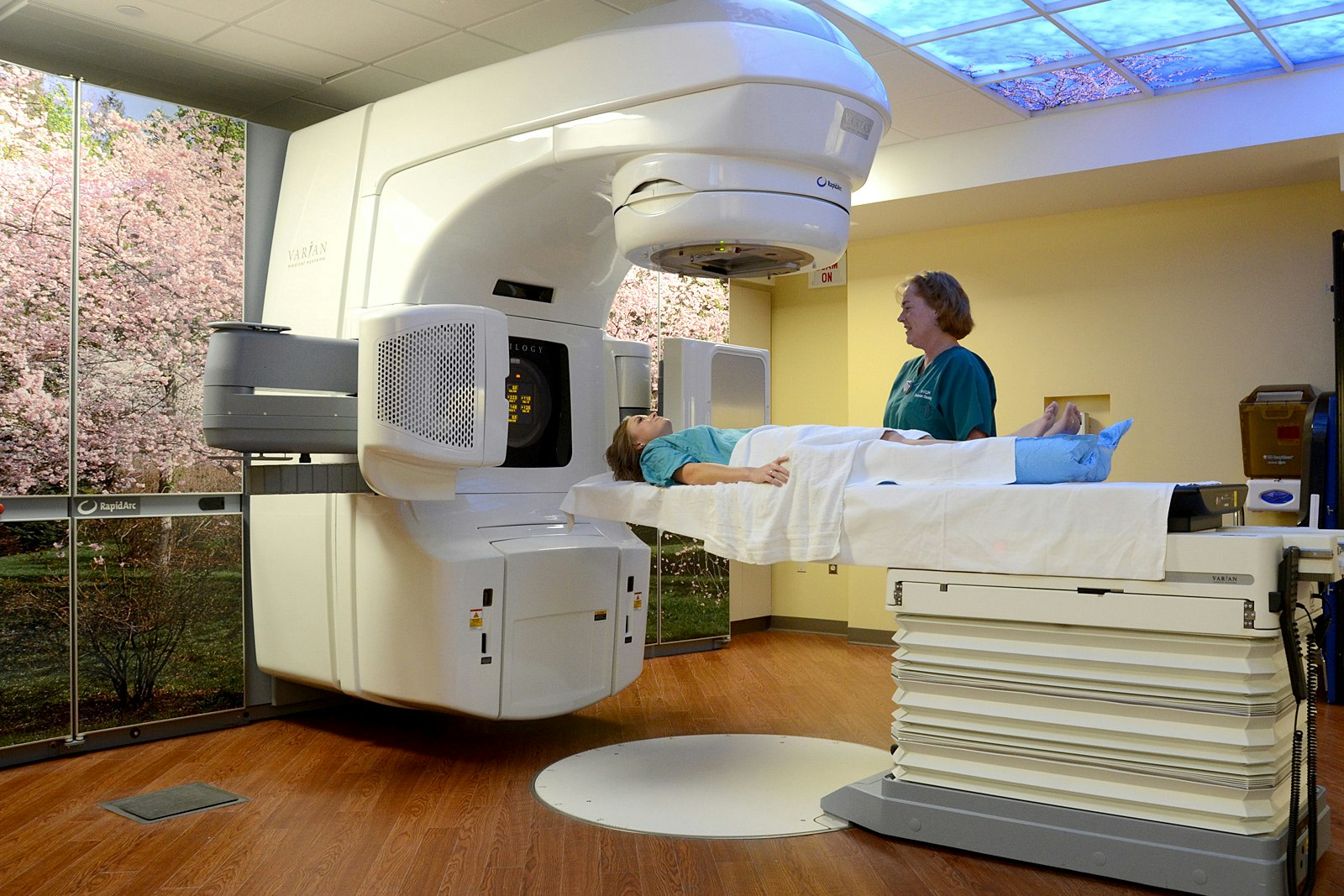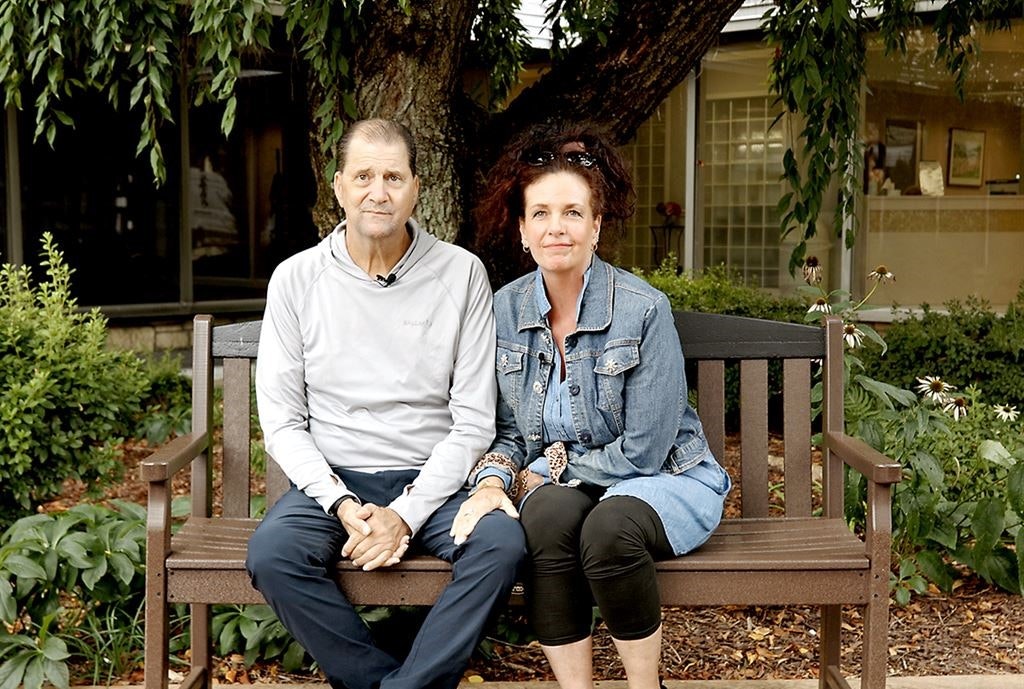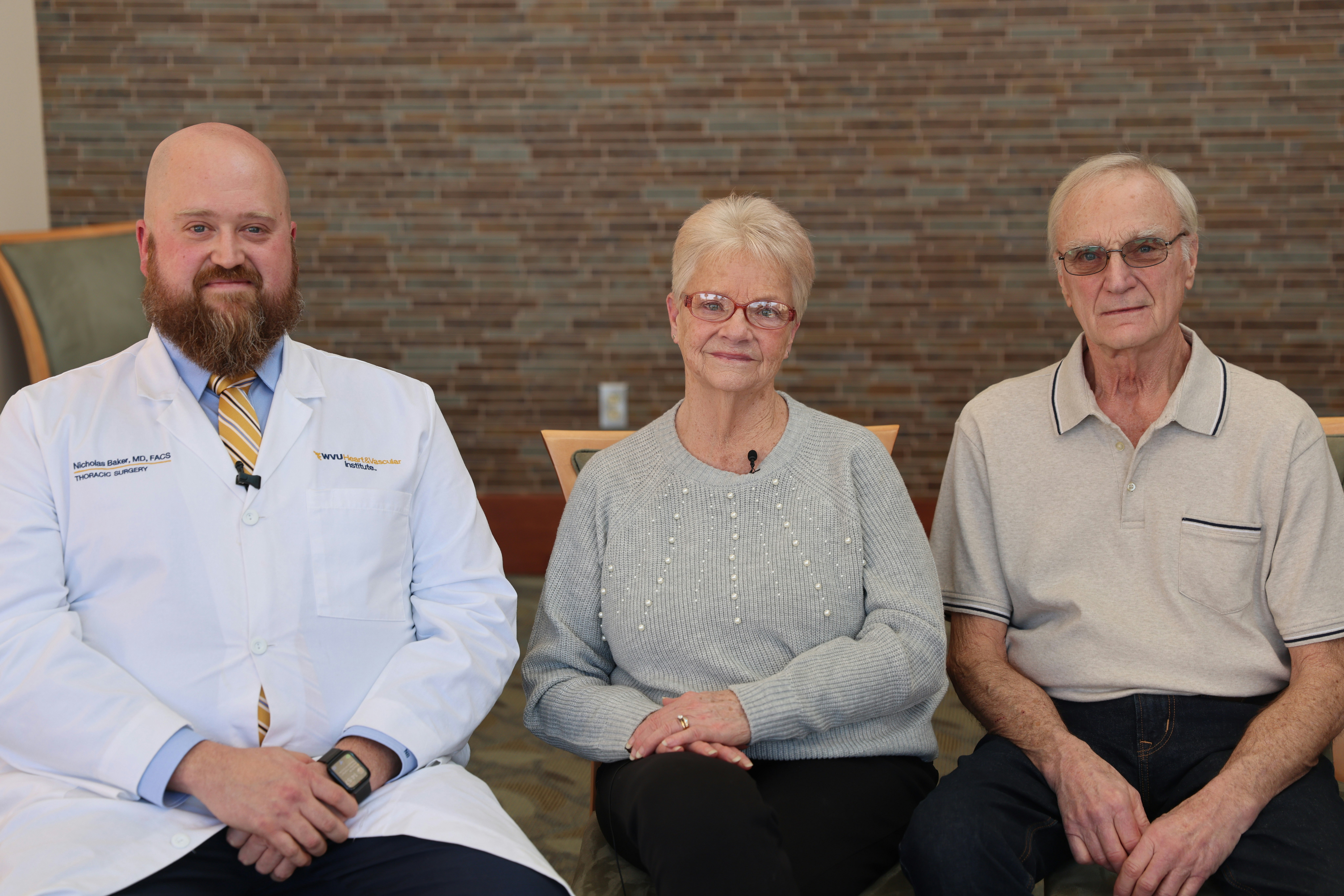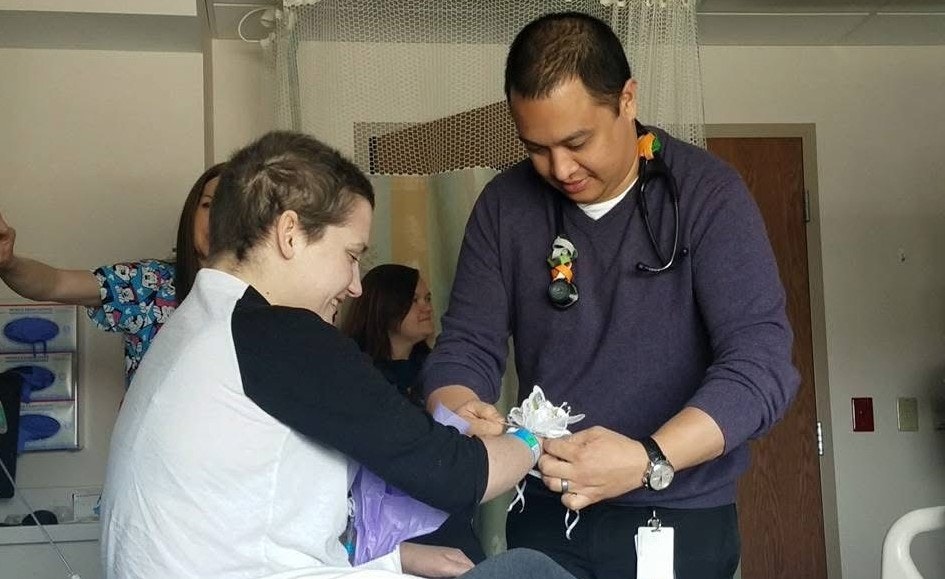There are two types of liver cancer —one starts in the liver as primary liver cancer, and the other begins in another part of the body spreading to the liver (metastasis). As the largest internal organ, the liver is a common site for metastases from many different cancers, including breast, esophagus, stomach, colon, pancreas, lung, and kidney.
Our oncology specialists at the WVU Cancer Institute treat cancerous and benign (noncancerous) liver tumors.
Types of Liver Cancers We Treat
The WVU Cancer Institute specializes in evaluating and treating cancerous and noncancerous tumors that affect the liver. Our comprehensive team brings together surgeons, medical oncologists, radiation oncologists, nurses, hepatologists, and pathologists — all with expertise in liver cancer. We work to make sure your treatment is customized to your specific type of cancer and your needs.
Our team has expertise in all types of liver cancer, including:
Primary liver cancer
There are two types of primary liver cancer, including hepatocellular carcinoma and bile duct cancer. Hepatocellular cancer is the third leading cause of cancer-related deaths worldwide. Several factors raise the risk of liver cancer. They include having hepatitis B or C, having cirrhosis, heavy alcohol use, tobacco use, and some inherited disorders. Learn more about the second type, bile duct cancer.
Liver metastases
Many different cancer types can spread to the liver. When this happens, it’s called liver metastases.
Diagnosing Liver Cancer
There are different ways to diagnose liver cancer. It’s important for you to talk with your doctor if you notice any new symptoms. These may include a hard lump on the right side of your body below your rib cage, discomfort in the upper abdomen on the right side, jaundice, or easy bruising or bleeding.
If your doctor suspects you may have cancer, certain tests can explain what is going on in your body. Because noncancerous conditions can cause abnormal test results, we carefully examine results and consider all factors.
- Advanced imaging — Doctors use ultrasound, computed tomography (CT), magnetic resonance image (MRI), and positron emission tomography (PET) scans to detect signs of disease. They can also see whether cancer has spread to other areas of the body.
- Biopsy — Doctors use this test to examine tissue under a microscope to learn whether cancer is present. During a biopsy, a doctor removes a small sample of tissue at the tumor site and analyzes it in a lab. Biopsy results help oncologists plan the best treatment for you. There are several different biopsy types, including image-guided biopsy (CT or ultrasound) or endoscopic biopsies.
- Liver function tests — This is a blood sample that doctors use to examine liver function. We collect a blood sample and check to measure the amounts of certain substances released into the blood by the liver. Sometimes, a higher-than-normal amount of a substance can be a sign of liver cancer.
- Physical exam — Doctors use a physical exam to check for signs of illness in your body, such as a tumor. These signs may include skin color changes, an enlarged organ, or lumps in your lymph nodes.
- Serum tumor marker test — Doctors use this procedure to collect a blood sample and measure the amounts of certain substances released into the blood by organs, tissues, or tumor cells (called tumor markers). A higher level of alpha-fetoprotein (AFP) in the blood may be a sign of liver cancer. Other cancers and certain noncancerous conditions, including cirrhosis and hepatitis, may also have higher AFP levels. Elevation in tumor markers from other tumor types may provide a clue as to the site of origin for liver metastases.
Treatment for Liver Cancer
From your first visit, our team works with you to address your specific condition and needs. Our goal is to preserve organs and improve functional outcomes. Your care plan may include:
- Ablation therapy — This type of treatment removes or destroys cancerous tissue and can include microwave ablation, radiofrequency ablation, percutaneous ethanol injection, or cryoablation. This procedure is performed by interventional radiology or by surgeons in the operating room, depending on the size and location.
- Embolization therapy —This type of treatment uses substances to block or decrease the flow of blood through the hepatic artery to the tumor. This works to cut off oxygen and nutrients to prevent cancer from growing.
- Hepatic artery infusion pumps — Our surgeons can implant a pump under the skin that connects to a catheter in one of the main arteries to the liver and delivers chemotherapy directly to the liver, where it’s needed most. This focused treatment decreases side effects and allows for delivery of stronger chemotherapy.
- Infusion therapy — Our doctors give medicine and fluids through a catheter into your bloodstream. Medicines can include antibiotics, chemotherapy, and fluids to build nutrients.
- Medical oncology — Medical oncology includes chemotherapy, immunotherapy, targeted therapy, and hormone therapy. Our doctors use the latest in anti-cancer medicine to destroy cancer cells. We also use medicines to slow cancer growth and shrink tumors before surgery. Sometimes, we use medication alongside other treatments, such as radiation, or after surgery to destroy any cancer cells that might remain. We also use targeted therapy, such as Tyrosine kinase inhibitors, to target specific liver cancer cells.
- Radiation oncology — We use radiotherapy treatments to target, destroy, and shrink many types of cancers. The treatments use a linear accelerator to produce precise, high-energy rays that target the exact area of cancer and spare healthy cells. Radiation oncology includes 3D conformal radiotherapy, image-guided radiation therapy, stereotactic radiation therapy, intensity-modulated radiation therapy, intraoperative radiation therapy (IORT), and brachytherapy.
- Surgery — Surgery can help us diagnose, stage, and treat many tumors. Surgical options for liver cancer include a partial hepatectomy, which surgeons perform to remove the part of the liver where cancer is found.
Resources for Liver Cancer
We believe cancer care goes beyond the medical diagnosis and treatment. That’s why you can access many resources that may help answer questions and connect you to others.





